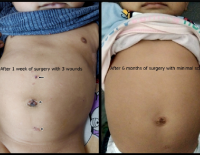Hair Fall: Know the causes and ways to manage

Hair fall is something almost everyone experiences at some point. Whether you’re noticing a few extra strands in your brush or a more significant change in volume, it’s natural to feel concerned. But before you panic, it’s important to understand that hair fall doesn’t happen for just one reason—there are a variety of factors that can play a role. In this post, we’ll dive into the common causes of hair fall and some tips on how you can manage it.
1. Genetics: The Role of Hereditary Hair Loss
One of the most common reasons for hair fall is genetics. If hair loss runs in your family, you may be more prone to it. Male and female pattern baldness (also called androgenetic alopecia) is typically inherited and can begin as early as your 20s or 30s.
While you can’t change your genetic makeup, there are treatments like medications or hair restoration techniques that can help manage the effects.
2. Hormonal Imbalances: The Hormone Rollercoaster
Hormonal changes can wreak havoc on your hair. From pregnancy and childbirth to menopause, hormonal fluctuations can cause temporary or permanent hair thinning. Conditions like polycystic ovary syndrome (PCOS) can also lead to hair loss due to elevated androgen (male hormone) levels.
If you suspect your hormones might be the cause, it’s a good idea to consult with a healthcare provider who can suggest treatments or lifestyle changes that may help.
3. Stress: The Silent Culprit
Stress is often linked to hair loss, especially when it’s prolonged. When you’re stressed, your body enters a state called “telogen effluvium,” where hair prematurely enters the resting phase and falls out. This type of hair loss is usually temporary, and hair often regrows once the stress is reduced.
To combat stress-induced hair loss, incorporating relaxation techniques like meditation, yoga, or even a walk in nature can help reduce stress levels and promote healthier hair growth.
4. Poor Diet and Nutritional Deficiencies: Fueling Healthy Hair
Your hair is made of protein, so it’s no surprise that a poor diet can affect its health. Deficiencies in key nutrients like iron, vitamin D, and B vitamins can contribute to hair thinning. Ensuring you have a well-balanced diet that includes plenty of protein, healthy fats, and vitamins can help support hair growth.
Consider adding more iron-rich foods (like leafy greens and beans), vitamin C-rich foods (like oranges and bell peppers), and biotin-rich foods (like eggs and nuts) to your meals to nourish your hair from the inside out.
5. Medical Conditions and Medications: Underlying Health Issues
Certain medical conditions, such as thyroid disorders, autoimmune diseases, and anemia, can lead to hair loss. In addition, medications for conditions like high blood pressure, depression, or cancer treatments like chemotherapy can also cause significant hair shedding.
If you suspect that your hair fall is related to an underlying health issue, it’s important to consult a doctor who can help you manage both the condition and its impact on your hair.
6. Excessive Hair Styling and Chemical Treatments: Too Much of a Good Thing
Constantly styling your hair with heat tools, tight hairstyles, or chemical treatments like bleaching and perming can cause damage to your hair follicles over time, leading to breakage and thinning.
To minimize hair damage, try to give your hair breaks from heat styling, avoid overly tight ponytails, and choose gentler hair care products. Opting for sulfate-free shampoos and conditioners and using deep conditioning treatments can help repair and protect your hair.
Tips to Manage and Prevent Hair Fall:
- Eat a balanced diet rich in essential vitamins and minerals.
- Reduce stress through mindfulness practices, exercise, and proper rest.
- Choose gentle hair care products and avoid over-styling.
- Consult a doctor if you suspect hormonal imbalances or underlying medical conditions.
- Be patient—hair growth takes time, and in many cases, hair loss is temporary.







